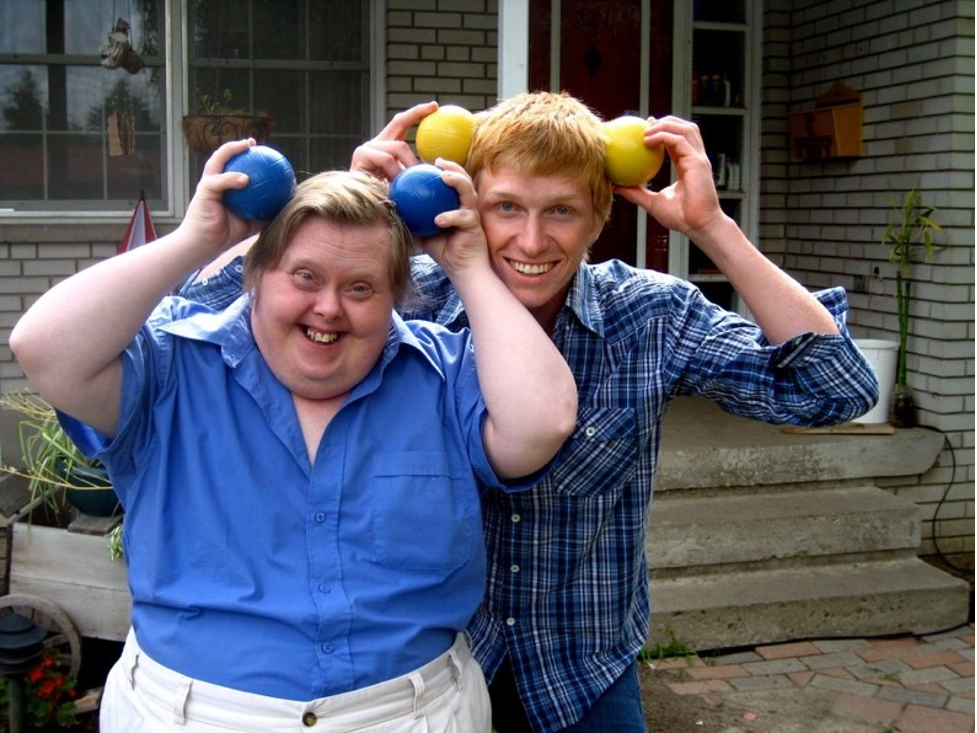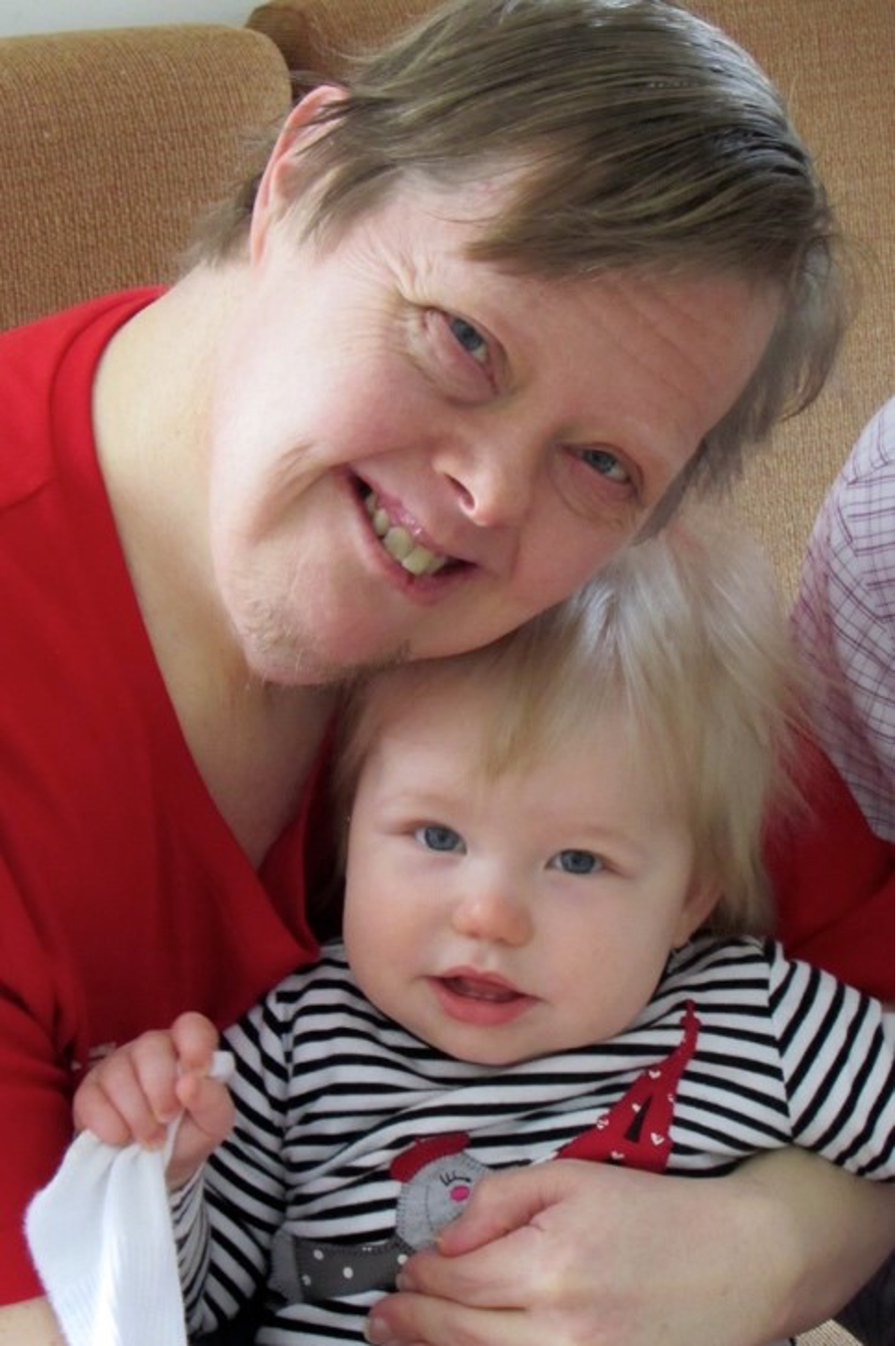A Life Worth Living
If you knew my Uncle Bill, who died last month at 52 years old, you would have liked him. Everyone did. He was a charmer.
Uncle Bill loved going to weddings. He always found a way to fill up his dance card with the pretty girls at a wedding. He would sneak over to the DJ to play his favorite hits and then proceed to command the dance floor. We also had to keep a watch out because he had a habit of sneaking his way to the nearest microphone and giving speeches – sometimes dangerously unvetted!

Uncle Bill loved to wrestle with his nephews in the pool (standing under five feet tall and approximately 250 pounds in his prime, he had an impressive center of gravity). He volunteered for ten years in the local public school helping the janitorial staff. He was a painter—learning to paint landscapes while in his 30s—and served as the assistant coach and candy provider for the church softball team.
Once I decided to pursue a call to pastoral ministry, Uncle Bill determined that this was his call too. He was often found in my grandparents’ apartment reading his Bible and a used psychology textbook to prepare for the work. Uncle Bill also loved to sing in church. He would belt out undecipherable sounds when we sang “How Great Thou Art”. He knew that Jesus loved him; and, in his own simple way, he loved Jesus too.
Uncle Bill was funny, tender, frequently stubborn, sometimes mischievous, and a thoroughly beautiful person. He is deeply missed.
Make no mistake: not everything about living with Down Syndrome is easy. There are learning challenges and health challenges. There are social stigmas. For parents of a child with Down Syndrome, there are behavioral challenges and a diminished independence. For my grandparents—an immigrant laborer and a stay-at-home mom—I know that raising and caring for my uncle was not always easy (but then again, what parent of any child has said, “I’m in need of a greater challenge”?). The example of my grandparents’ care and love for Uncle Bill was a sparkling example to their family of unconditional love for which we will always be thankful.
But why do I share such a personal reflection with you here? Yes, I think it’s fitting to eulogize a man whose life—despite worldly measures—was fitting of recognition, but it’s more than that. My Uncle Bill’s life underscores a pair of profound moral and theological truths that are often dismissed: that all people are made in the image of God and worthy of dignity and respect and that as such their lives are to be protected.
The biblical worldview provides a foundation for human dignity that the secular worldview—suffering from a self-inflicted denial of God—cannot. In Genesis 1, we read, “So God created man in his own image, in the image of God he created him; male and female he created them” (v. 27). The fact that all humanity reflects God’s image remains true even after the fall into sin with its accompanying corruptions (Genesis 9:6). In his purposeful design, God determined that all human beings—regardless of age, sex, color, or mental and physical capacity—display something of His likeness in a way that pleases Him and brings Him glory. It is this truth that establishes the necessity of the pro-life position for Christians. Whether a child is healthy or not, whether the child is a boy or a girl, whether the child has two chromosome 21’sor three, they are fearfully and wonderfully made (Psalm 139:13–16). Theirs is a life worth living.

The moral vacuity of secularism is seen in comments made by atheist Richard Dawkins. In 2014, Dawkins tweeted that a woman who found out she was pregnant with a child with Down Syndrome should “abort it and try again” since “it would be immoral to bring it into the world if you have the choice.” When the comments proved controversial, he insisted that his views were both “logical” and “civilized”.
When Dawkins was asked last month, he doubled-down on his comments by saying that it would be “wise and sensible” to abort a child with Down syndrome since, in Dawkins’ view, this would reduce the amount of suffering in the world (to which one must ask the enlightened scientist: where is the evidence?). When the reality of God is denied, the objective basis for the value of people like my Uncle Bill—or anyone for that matter—is stripped away. We are left to let those with power determine whose lives meet their arbitrary standard of value.
Dawkins, though stunningly forthright, is not an outlier. Iceland has an average of one or two children born each year with Down Syndrome. Denmark, a nation of 5.8 million people, had 18 people with Down Syndrome born in 2019, a nadir reached because over 95% of Danish pregnancies with a Down Syndrome child are aborted. These countries show what happens when societies jettison Biblical truth and the objective grounds it provides for human dignity: the widespread extermination of a people group.
The United States is not far behind. It is estimated that between 1995-2011, 67% of pregnancies with a Down Syndrome child--ended with an abortion. That’s as many as 200,000 deaths.
Iceland and Denmark would soon have you forget that Down Syndrome ever existed. The life of my Uncle Bill—with all of its distinct and complex beauty—means that I never will.But I’m especially thankful that Uncle Bill’s life had a dignity and worth not only in my eyes—that in itself would be of little value—but in God’s eyes too. His life truly was a life worth living.
In His Service,
Pastor Wayne Veenstra